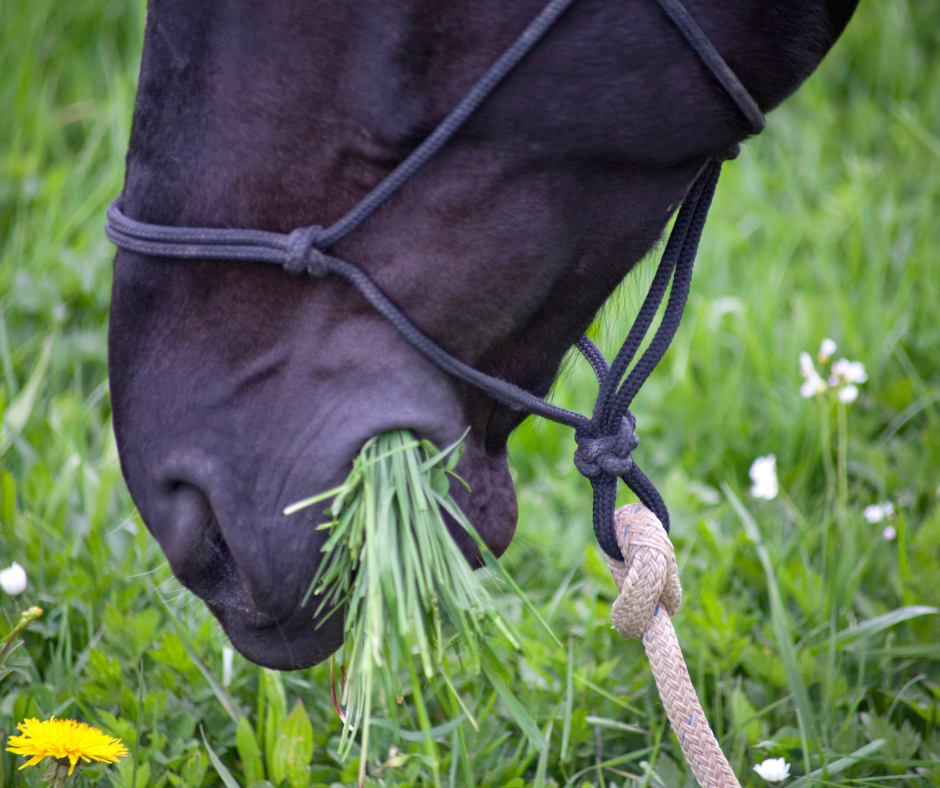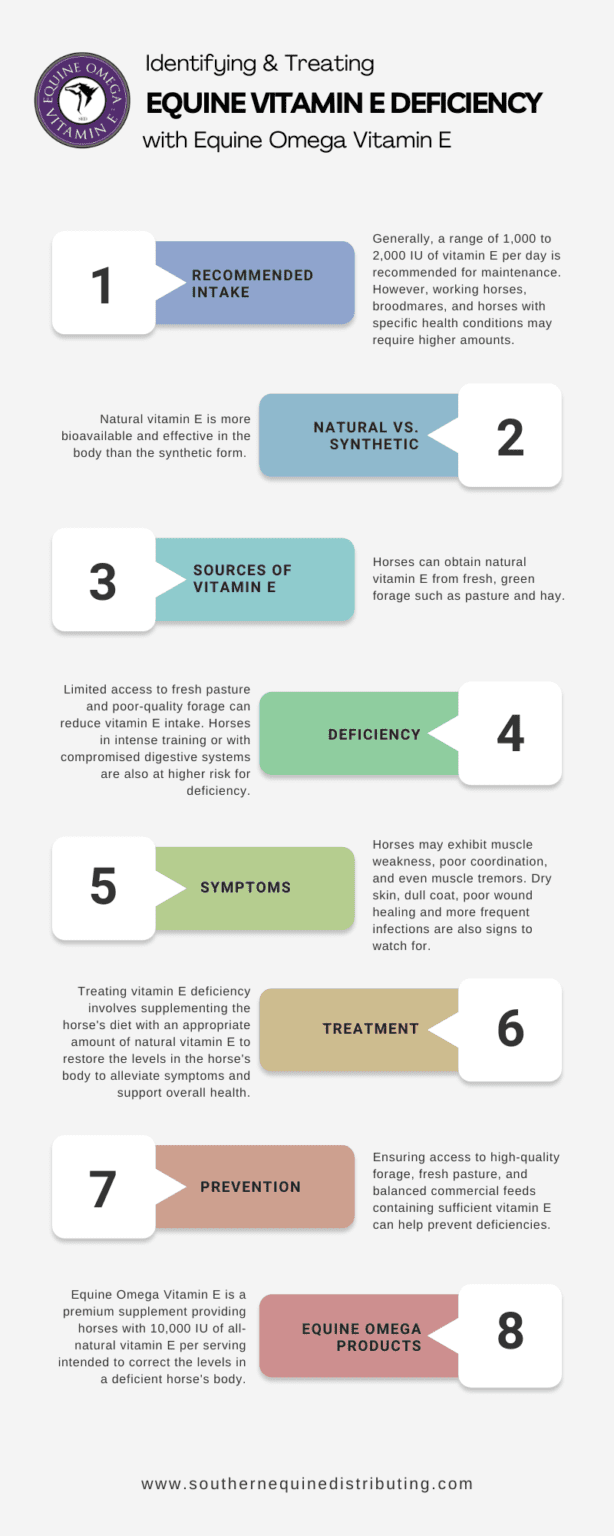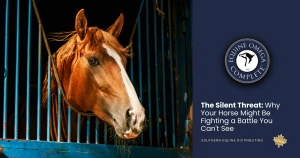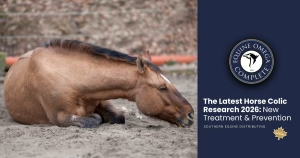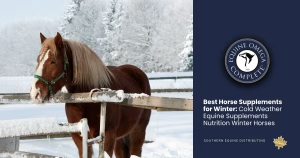Introduction
Vitamin E plays a crucial role in maintaining the health and well-being of horses. As an essential antioxidant, it contributes to various bodily functions, including immune system support, muscle function, and neurological health. However, many horse owners might not realize that their equine companions can be susceptible to a deficiency, which can lead to a range of health issues. In this comprehensive guide, we’ll delve into the importance of this vitamin, the factors that can contribute to deficiency, the symptoms to watch for, and effective strategies for treatment and prevention.
Vitamin E Essentials
Vitamin E is a fat-soluble vitamin that horses require in their diet for optimal health. The recommended daily intake varies based on factors such as age, activity level, and reproductive status. Generally, horses need around 1,000 to 1,500 International Units (IU) of vitamin E daily. However, this requirement can increase for performance horses, pregnant mares, and those experiencing certain health conditions.
Natural vs. Synthetic
While both natural and synthetic forms exist, natural vitamin E is often preferred due to its higher bioavailability and efficacy. Natural vitamin E is more easily absorbed by the horse’s body and provides superior antioxidant benefits. Synthetic, on the other hand, is not as readily utilized, potentially leading to suboptimal results.
Where Do Horses Get Vitamin E?
Horses grazing on lush pasture can obtain a substantial portion of their recommended daily intake from the forage. Fresh grass contains natural vitamin E, which is readily available for absorption. In such cases, horses may meet a significant portion of their requirements without additional supplementation.
Horses that are turned out during the day but do not have access to pasture have limited access to vitamin E. Hay, although an essential part of their diet, may not provide sufficient levels of this vital nutrient. In such situations, additional supplementation becomes necessary to meet their daily requirements and maintain optimal health.
During drought or when pasture quality is compromised, the natural vitamin E content in the forage diminishes. In these circumstances, horses may not receive adequate amounts from grazing alone. Monitoring pasture quality and supplementing with vitamin E is essential to ensure horses receive the necessary intake, especially during challenging environmental conditions.
The Risks of Vitamin E Deficiency
A vitamin E deficiency in horses can significantly affect their overall health and performance. As a powerful antioxidant, vitamin E protects cells from oxidative damage and supports immune function. A deficiency compromises these protective mechanisms, leaving horses vulnerable to several risks.
The consequences of deficiency can vary among different horse populations. Younger horses, especially foals, have increased nutrient demands for growth and development. Insufficient vitamin E intake during this critical period can lead to delayed growth, a weakened immune system, and developmental disorders.
Mares and stallions have specific considerations as well. Pregnant and lactating mares require adequate vitamin E to support fetal development and milk production. Stallions, on the other hand, may experience reduced fertility and reproductive performance when deficient in this vital nutrient.
The risks associated with a deficiency are particularly significant for performance horses. Intense exercise increases the production of free radicals, leading to higher oxidative stress. Vitamin E, with its antioxidant properties, helps counteract this oxidative damage. Insufficient levels in performance horses can impair muscle function, increase recovery time, and compromise overall performance.
Short-Term Consequences
In the short term, a deficiency can lead to compromised muscle function and increased muscle damage during exercise. Horses may experience fatigue, reduced stamina, and poor recovery following exertion. Additionally, impaired immune function can increase susceptibility to infections and reduce the ability to combat illness effectively.
Long-Term Consequences
If left untreated, vitamin E deficiency can have severe long-term consequences. One of the most notable complications is equine degenerative myeloencephalopathy (EDM), a neurological disorder characterized by progressive damage to the spinal cord. Horses with EDM may exhibit incoordination, weakness, and difficulty controlling their movements. In severe cases, it can lead to paralysis.
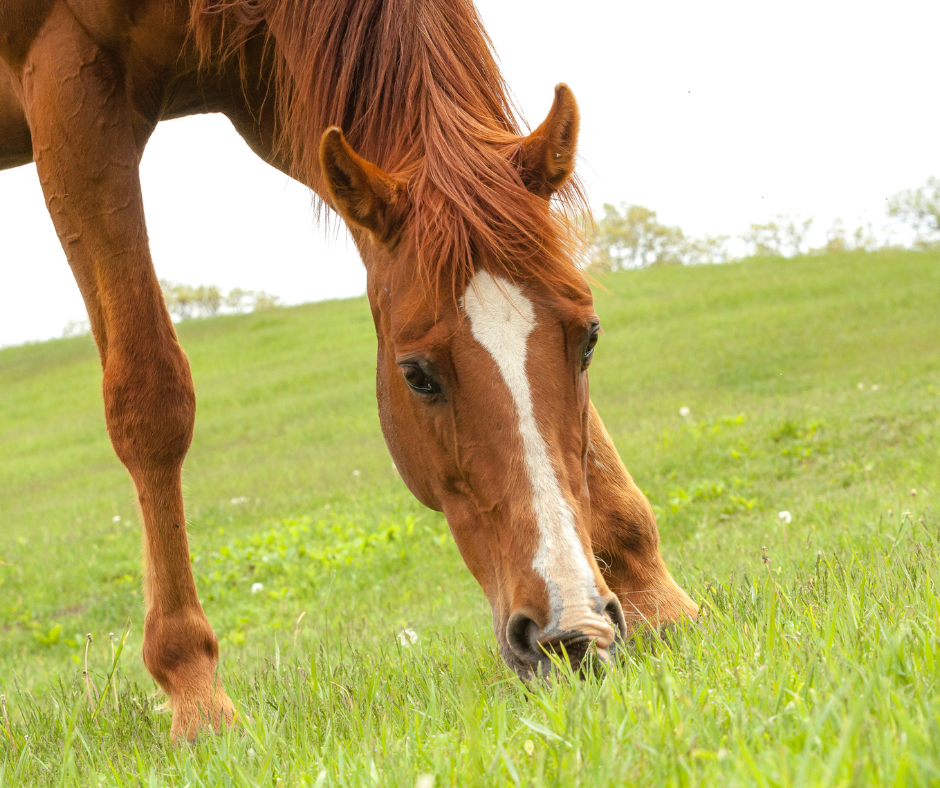
Symptoms and Detection
Recognizing the symptoms of vitamin E deficiency is crucial for timely intervention. Common signs include muscle weakness, stiffness, reduced exercise tolerance, weight loss, and a dull coat. Horses may also exhibit neurological symptoms such as ataxia, tremors, and difficulty swallowing. Consultation with a veterinarian and conducting blood tests can confirm a deficiency and guide appropriate treatment.
Understanding the risks associated with vitamin E deficiency in horses is essential for maintaining their overall health and performance. Short-term consequences may impact muscle function and immune response, while long-term complications can lead to neurological disorders. Specific considerations for different horse populations highlight the importance of tailored supplementation. Recognizing deficiency symptoms and seeking veterinary guidance allow for timely intervention, ensuring optimal vitamin E status and well-being for horses.
Performance and Recovery
One of the primary indications of vitamin E deficiency is muscle weakness and stiffness. Horses may be reluctant to move, reduced performance, and difficulty engaging in physical activities. Muscle weakness can be particularly evident during exercise or after periods of rest. The lack of vitamin E compromises muscle function, decreasing strength and coordination.
Horses may experience reduced exercise tolerance. They may tire more quickly, struggle to maintain their usual level of performance or become easily fatigued. This diminished endurance can significantly impact their training progress and overall athletic abilities.
Body Condition
Vitamin E deficiency can contribute to weight loss and a decline in body condition. Horses may have difficulty maintaining a healthy weight despite an appropriate diet. The lack of this essential nutrient affects their metabolic processes, resulting in reduced appetite and inadequate nutrient absorption. As a result, horses may appear thin, lack muscle tone, and have poor coat quality.
A dull, lacklustre coat is another visible symptom; horses may exhibit a rough or dry coat, lacking good health’s natural shine and lustre. Skin abnormalities such as flakiness, sores, or lesions may also develop. Vitamin E plays a vital role in maintaining healthy skin and hair; its deficiency can lead to compromised skin integrity.
Neurological Problems
In severe cases, horses may experience neurological symptoms. These can range from mild incoordination and unsteady gait to more severe manifestations such as ataxia, muscle tremors, and difficulty swallowing. Neurological symptoms require immediate veterinary attention as they indicate a critical stage of deficiency that can lead to irreversible damage if left untreated.
Depressed Immune Response
Vitamin E plays a crucial role in the body’s healing processes. Deficient horses may exhibit delayed wound healing, with injuries taking longer to close and regenerate. This impaired healing response can result in increased susceptibility to infections and complications.
A deficiency compromises the horse’s immune system, making them more susceptible to infections and illnesses. Horses may experience recurrent respiratory infections, skin infections, or a general inability to combat pathogens effectively. A weakened immune response further impacts their overall health and well-being.
Treating Vitamin E Deficiency
When a horse is diagnosed with a deficiency, implementing an appropriate treatment plan is crucial to restore their health and well-being.
Supplementing with Natural Vitamin E
One of the most common treatment methods is supplementation. Natural vitamin E, also known as d-alpha-tocopherol, is preferred due to its superior bioavailability and effectiveness compared to synthetic alternatives. Natural vitamin E is derived from plant-based sources and is better absorbed and utilized by the horse’s body.
Supplementing with natural vitamin E can be accomplished through oral administration. Various forms are available, including liquid suspensions, powders, and capsules. It is essential to select a high-quality product from a reputable manufacturer to ensure the potency and purity of the supplement.
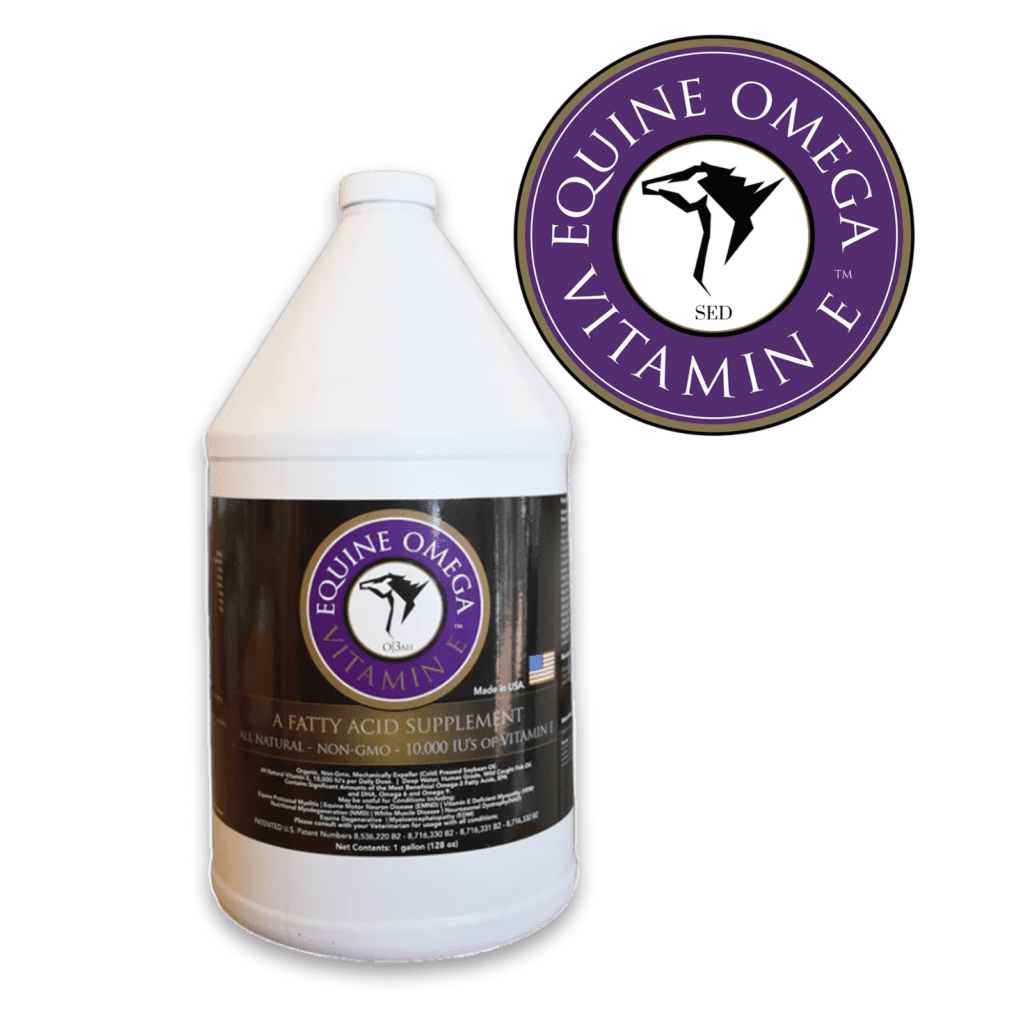
Equine Vitamin E
Equine Omega Vitamin E® provides 10,000 IU of absorbable natural d-alpha tocopherol (vitamin E) per serving suspended in soybean oil to maximize absorption of this essential fat-soluble vitamin. Equine Omega Vitamin E® is an excellent choice for horses on a hay-based diet. Lack of access to quality pasture can lead to vitamin E deficiency.
Dosage Considerations
Supplementation is often recommended as a long-term treatment approach. Horses with chronic deficiency or specific health conditions may require continuous supplementation to maintain adequate vitamin E levels. However, it is essential to consult with a veterinarian regarding the optimal duration of supplementation for each horse’s unique circumstances.
Determining the appropriate dosage depends on several factors, including the horse’s age, weight, overall health, and the severity of the deficiency. It is advisable to consult with a veterinarian to assess the horse’s specific needs and develop an individualized treatment plan.
Typically, horses with a deficiency may require higher initial doses to replenish their depleted levels. These higher doses are often administered briefly before transitioning to a maintenance dosage. Regular monitoring of the horse’s vitamin levels through blood tests allows adjustments to be made to the supplementation regimen as needed.
Dietary Adjustments
In addition to supplementation, adjusting the horse’s diet can increase its vitamin intake. Fresh forage – high-quality pasture – contains natural sources of vitamin E. However, the content in forage can vary depending on soil quality, harvesting methods, and storage conditions.
To enhance intake through forage, providing horses access to lush, green pasture is beneficial. Horses grazing on pasture can obtain a significant portion of their daily requirements. However, it is essential to note that content in pasture diminishes over time, especially during drought or winter. Therefore, supplementation remains a crucial component of treatment to ensure consistent and adequate levels.
Conclusion
Vitamin E deficiency is a preventable condition that can have significant implications for a horse’s health and performance. By understanding the importance of this vitamin, recognizing deficiency symptoms, and taking proactive steps to ensure adequate intake, horse owners can help their equine companions thrive. Whether through natural sources or carefully chosen supplements like Equine Omega Vitamin E, supporting your horse’s needs is a vital aspect of responsible horse care.
